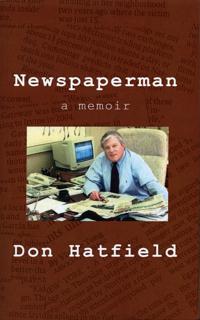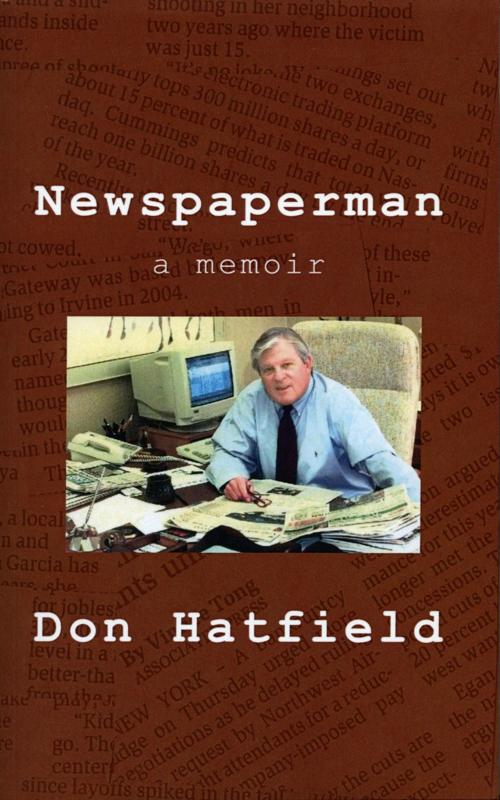Don Hatfield was just shy of his 18th birthday and a kid infatuated with sports when he walked into the Huntington, West Virginia, newspaper offices and landed a job as a part-time sports assistant.
He was hooked. And he never got over it.
His latest book, “Newspaperman, A Memoir,” details his 47-year journalism career starting from that first day at the Huntington Advertiser up until he retired in 2000 as editor/publisher of the Tucson Citizen, a Gannett paper. The Citizen closed in 2009.
A little more than half of the hefty (620 pages) book takes place in Huntington; the rest is devoted to his years in Tucson.
He writes about his instant connection to the Old Pueblo, and he and his late wife Sandy’s excitement about the arts, the culture, the sports scene here. And it reads like a who’s who of Tucson’s movers and shakers from the late 1980s to 2000, when Hatfield turned 65 and retired — Gannett’s mandatory retirement age for executives.
He recalls the day Congressman Mo Udall strolled into his office to welcome him to Tucson. He sat down with Sen. John McCain. He counted Lute and Bobbi Olson as friends.
But it’s not really about the people he came across. “Newspaperman” gives a deep, behind-the-scenes look at newspapers. It intimately tells of the joys and agonies of the job.
And there were some awful agonies. He was the editor the November night in 1970 when the plane carrying most of the Marshall University football team, its coach and several prominent Huntington citizens who were boosters of the team, crashed. No one survived. The tragedy was the subject of the 2006 movie “We are Marshall.”
Marshall was Huntington’s hometown school; everyone felt the pain.
Though he knew most on the plane, Hatfield did not have the time to mourn — he had a newspaper to put out. Huntington citizens needed to know what happened, needed the paper to learn facts and report them.
He got home at 3 a.m. The house was dark; his wife and children were asleep.
“I went into the kitchen and took two beers from the refrigerator and walked into the living room and sat on the couch in the dark and opened one of the beers and took a long drink,” he writes. “And then I started shaking.”
Hatfield didn’t retire with the intent to write a book — a dream many journalists harbor.
It was his son, Joel, who gave him the idea.
“I would tell stories over the dinner table,” says Hatfield, talking from his Huntington home. “Joel said, ‘You need to write these down.’” Hatfield scoffed at the idea: He hadn’t worked at big newspapers, wasn’t a fancy war correspondent. Who would care?
Joel had an answer.
“‘The things you are talking about others haven’t done, and you’ve had a unique career,’” Hatfield recalls his son saying.
“I sat down and started knocking out a few things in 2013,” says Hatfield. “I finished the first draft, put it aside and when I went back to it I realized it needed a lot of work.”
But then tragedy struck: Hatfield’s two sons, Joel and Chris, died within a few months of each other in 2014.
“I kept telling myself I was writing it for them, so I put one copy in a safe deposit box, another in a cabinet (at home) and forgot about it.”
And then there was this: “It was a painfully honest book and it might hurt feelings,” he says. “Why would I want to do that at my age (83).”
But friends who had heard his stories over the years agreed with Joel: A book should be written.
“One day, I didn’t have anything to do so I got it out and looked at it,” says Hatfield. “So I sat down started rewriting.”
Hatfield never lost has the newspaper bug. And while papers may look vastly different than when he first sat at a typewriter to bang out a story, he still feels the same.
“It matters. It matters,” he says about journalism. “It matters because people need to know.”





